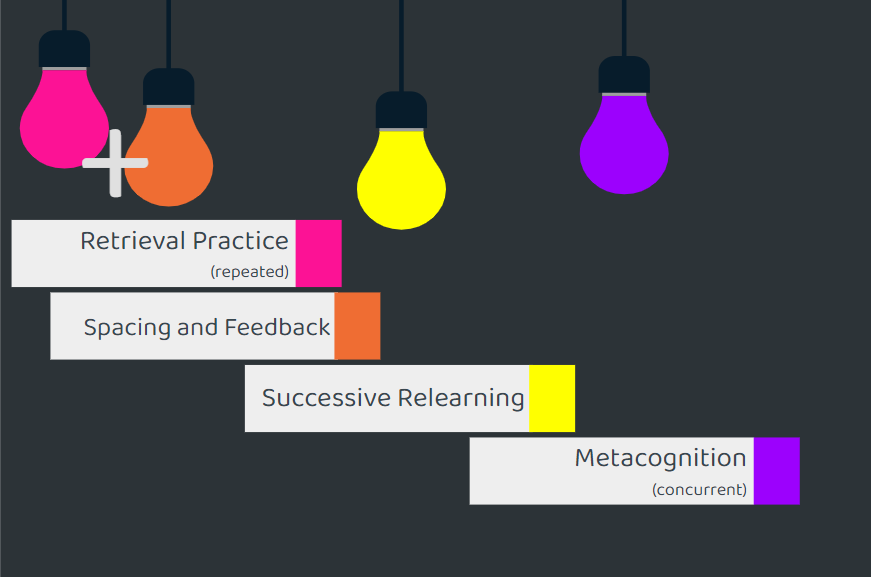This INSET our school benefited from an afternoon’s presentation and conversation with Sarah Cottingham @overpracticed. Sarah’s social threads and blog posts are becoming very popular indeed. Here is what I took away from her presentation in addition to what I learnt from watching an expert educator “at work.”
Memory as an ecosystem
Memory is an ecosystem not a library system.
Sarah Cottingham
Sarah’s session covered learning, promoting the “ecosystem” metaphor for memory. Where memory is:
- Dynamic: constantly change; we need to check in on memories
- Adaptive: we can create the conditions to help memories thrive
- Interconnected: effortful thinking changes understanding
Here, our staff were introduced to the task of recording and summarising their own understanding. Which is of course, unique to each member of staff.
The importance of facts
We want students who can think with the knowledge they have.
Sarah Cottingham
More importantly, Sarah stressed that learners needed “bodies of knowledge” with which to think and learn.
The simple model of memory
A short detour of the “Simple model of memory” allowed for a discussion on working memory and cognitive load – and it’s implications for the classroom.
Expertise as schemas
Here Sarah shared her knowledge on the importance of domain specific knowledge, primarily for teachers themselves. But when on to explain the importance of understanding the development of expertise.
More expertise = more knowledge, better connected in schemas.
Sarah Cottingham
What did she stress we understand?
Expertise as schemas, domain specific. Expertise is a developmental process and therefore how you teach should be adapted accordingly: explicit and high support when teaching novices, fading scaffolding and adding problem solving as expertise develops.
On curiosity
Getting a pupil to be interested or curious in something they have very little knowledge of, is potentially – “a fool’s errand.” Having a little knowledge of “something” can lead pupils to be invested.
Sarah Cottingham
Building knowledge
Here she stressed the benefits of linking the material being taught with prior knowledge and the benefits of retrieval for consolidation. (I would also add for potentiating learning also.) There was a short detour on the importance of sleep also.
Feedback from the staff highlighted two points. Sarah’s enthusiasm for her subject and how quickly the time passed.
Final thought
Teachers being reminded of what it is like to be a learner – has real professional value.
More from Sarah here.
Cowan, N. (2010). The magical mystery four: How is working memory capacity limited, and why?. Current directions in psychological science, 19(1), 51-57.
Berliner, D. C. (2004). Describing the behavior and documenting the accomplishments of expert teachers. Bulletin of Science, Technology & Society, 24(3), 200-212.
Willingham, D. T. (2009). Why don’t students like school? A cognitive scientist answers questions about how the mind works and what it means for the classroom. Jossey-Bass.



